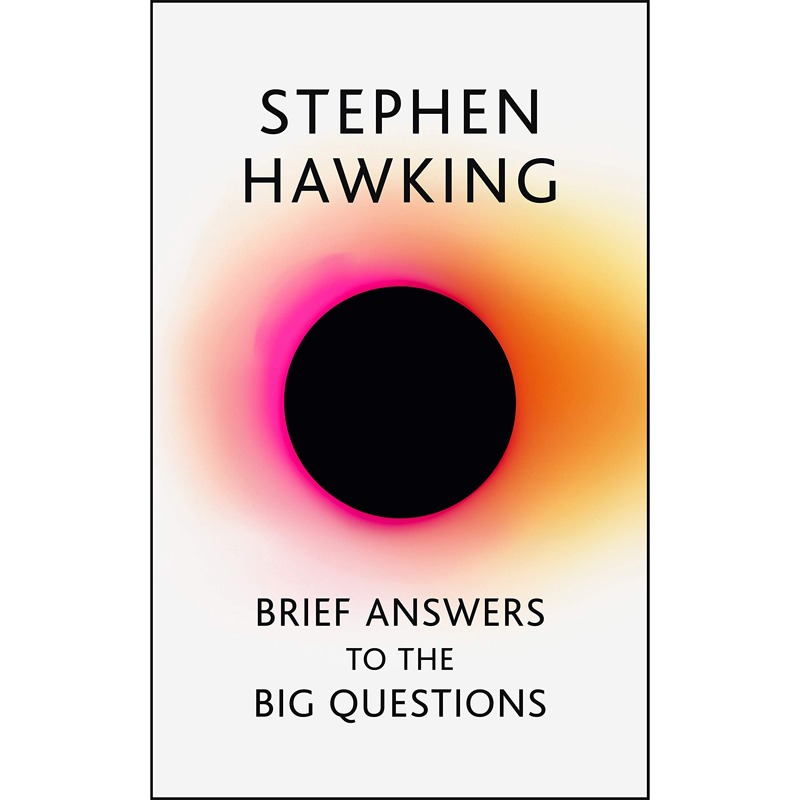Brief Answers to the Big Questions
Hawking’s last book concluded that there is no possibility for the existence of God in our universe.

In the very last attempt of science writing, the renowned physicist Stephen Hawking tackled on some of the biggest mysteries and religiously freighting questions about the universe and he tackled them very well.
The book published in October 2018 by Bantam books New York, just six months after Hawking’s death that merely seems a collection of his five-decades-long research work, stated by the publisher. The preface of the book is brilliantly written by Eddy Ride Moore who played Hawking’s role in his biopic “Theory of everything”. In the beginning, the leading
Hawking over a period of more than half a century.
The book begins with the thought-provoking questions that why we should identify and try hard to resolve the greatest mysteries of the universe. Since Stephen Hawking had viewed the human kind as scientists and whenever he inquired about the origin of life and fate of the universe, he answered these queries as a scientist. The main purpose behind compiling this book is to spread the awareness that science can play a vital role in understanding the biggest problems of mankind on planet earth and each chapter of the book addresses a mystery of the universe.

The first & second chapters of the book outline the questions about God’s existence and the beginning of the universe. It is a matter of fact that we observe the universe as it seems but why this is so, what was its origin? Who creates it, a supernatural being or it came into existence out of nothing and what would be its fate? The answers of these questions have compiled from his interviews, lecture series and speeches. Though Hawking’s life had relayed on an electric wheelchair his mind could able to spiral across this mind-bogglingly vast cosmos and swishing back billions of years to
Once Hamlet said that if he imprisoned in a tiny shell, he could still smell himself as the emperor of this small space. Likewise, Hamlet, the human-kind has been deeming itself as the emperor of this endless universe. But here, in the third chapter of the book Stephen hawking enlightens on the possibility of life somewhere else in the universe as an experienced physicist and entitled living being as an ordered system, which can resist any obstacle and can regenerate by itself.
In the very next chapter of the book without going into the freighting religious or astrology details, Hawking discusses that it could never be
All through the life Stephen Hawking vociferously defended his big bang theory- a widely accepted and appreciated idea about the origin of the universe which states that everything the universe contains emerged from the speck of a massive explosion and is strictly following the fixed and certain scientific laws. Hawking concluded this concept that M-theory a combination of laws of relativity, gravity, and quantum physics are enough to explain everything and every phenomenon around us.
The Black holes are generally collapsed stars those are so dense that nothing even the light can escape from them. At their ultra-packed point of mass called “event horizon”, the gravity is happened to be so strong that it distorts both time and space, so time does not exist in the depths of a black hole. This is a piece of evidence that there was not time before the big bang because the universe also came into existence as a singularity.
Hawking similarly successfully captures the possibility of time travel in the last chapter of his book. The laws of Quantum physics tell us that Einstein’s general theory of relativity is precise and if the energy density of the universe is positive enough then traveling into time could not be possible might with some exciting new set of laws and breakthrough in future one day it could be a reality.
In his final book, Hawking concluded that the universe is self-sufficient, the God or a divine power played a role only in setting the initial conditions of the universe so that the universal laws of nature could take their exact shape as we find them. Though this concept is a little coax to the theistic believers’ still i leaves plenty of space for hope, wonder, excitement, and gratitude to the humankind.

Saadeqa Khan is the founder, CEO, & Editor-in-Chief of Scientia Pakistan. She’s a member of the Oxford Climate Journalism Network (Second Cohort) and NASW. Saadeqa is a fellow of NPF Washington, The Falling Walls Foundation, and the Science Journalism Forum. Saadeqa has won several international journalism grants and awards for her reports.

